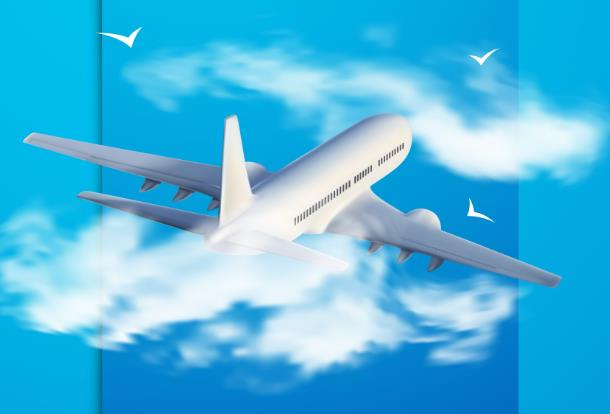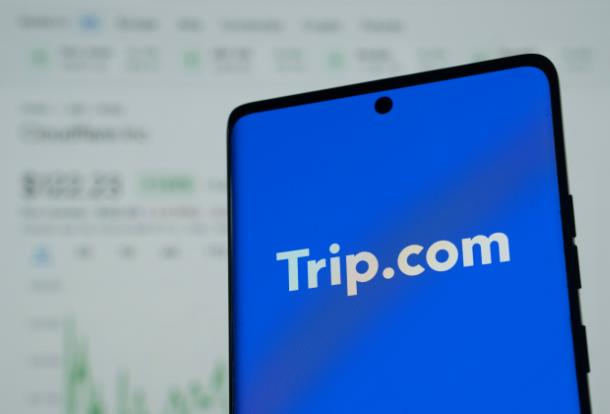ChinaTravelNews, Ritesh Gupta - Use cases of AI are getting refined as Chinese technology companies become sophisticated with the handling of massive data volumes, crafting advanced algorithms and embrace improvements in computing power and storage.
Some of the areas where application of AI is coming to the fore in the travel sector includes: improving the efficacy of traditional travel agents by working out a customized trip itinerary in a matter of seconds, recommending add-ons based on the traveler’s previous bookings or recent trip planning behaviors, curbing payment-related fraud etc.
Examples of how Chinese technology companies are leveraging AI:
Travel agents counting on AI engine for trip itineraries: Consumers are more aware of travel-related options and have devices to research and complete trip-related transactions, but it also means that narrowing down of choices isn’t easy. The blend of artificial intelligence and human assistance via travel agents is a way to deal with completed travel itineraries.
“Travel agents receive customization requests from their travelers, who aren’t just looking for going to a destination or staying in a property. In fact, today’s consumer, especially the “Millennials”, are looking beyond tours, sightseeing tours, and are open to experiences – could be living like a local or activities related to their hobby (painting, music etc.). The process of generating a tailor-made customization for every traveler needs to be automated. That’s where travel technology company Mioji with our artificial intelligence-powered itinerary planning platform intends to make a difference,” says Fan Zhang, Founder and CEO of Mioji. The four-year-old company, which has raised $26 million via two rounds of financing, has around 180 employees, growing from 130 last year.
Mioji has worked on a tool/ interface in which a user enters the departure city, travel duration, number of travelers, destination and travel preferences. The end results in a span of seconds - an itinerary including hotels, transportation, attractions etc. Mioji searches options from B2B and B2C resources, including OTAs and other intermediaries, and produces results. The team at Mioji is optimistic about coming up with one itinerary, by blending data with fast, iterative processing and intelligent algorithms, allowing the software to learn automatically from patterns or features in the data.

“Traveller can share their plan, budget, preferences or even come up with specific information (such as hotels only with certain star rating or even watching tennis in Paris in case there is a popular tournament) and we will come up with one itinerary, offering various versions such as PDF, H5, Excel, Word, and Guidebook,” said Kelly Zhang, VP of Sales and Marketing, Mioji. There is also provision for flexibility to incorporate changes in the itinerary. “From air-ticket to accommodation, Mioji can provide real-time network price comparison, creating itinerary to quotations, our offering improves the efficacy of the way agents function. Post confirmation from travelers, an agent can formulate a proposal and quote plus Mioji can also automatically design and layout a digital guidebook for travelers. There is a draft itinerary that can be shared for visa application.”
Mioji is currently associated with 50 organizations, including Thomas Cook, UTour, CITS, Jinjiang Travel, Hi Guides, GlobalJoy Qtravel.cn etc. “We have initially targeted established agencies in order to test the functioning and viability of the product,” said Fan, who added that Mioji considers GDS companies to be a source of travel products, and is even open to exploring the possibility of extending their technology to GDS companies the way it is offered to traditional agencies today.
Real-time language translation: A fascinating area where China has shown progress is the real-time wearable translation category. “Language problem is the main concern among travelers from China when they are considering a trip abroad,” says Alex Qin, co-founder, Timekettle. Qin’s company, one of the joint winners of the ITB China Startup Award in Shanghai last month, has worked on a translation device that consists of a pair of headsets connecting to an app. Speech passes through the headset to the smartphone which translates it. And eventually, it is then spoken into an earpiece worn by a second person. “Our device, WT2, is the world’s first 1+2 wearable earphone translator. This means when we want to talk to a foreigner we just need to share one piece of earphone and we could talk freely. Comparing with handheld translator, WT2 avoids the embarrassment for two people to keep shifting the devices or ask your speaking partner to download an app for the conversation,” said Qin.
Alex Qin, Co-Founder, Timekettle
“There are local guides, but US $100 per days holds us back since the journey could be long (or it can turn out to be an expensive proposition for most of the travelers). Also, the guides wouldn't be there always with the traveler. Therefore, with artificial intelligence machine translation via a device like the WT2 real-time earphone translator, people could talk with a foreigner just with a wearable translator no matter when they're asking for flight information, direction/ routes in foreign countries etc.,” said Qin. He added that even for in-destination activity such as shopping or dining out, travelling would be lot more fun.
Digital marketing: Travel involves multiple sessions across various phases of the journey and transactions can take place at regular intervals. AI can help in targeting travelers with ads suited for each step. By capitalizing on historical data, discovering the pattern of travel planning behaviors, and acting on this insight to foretell the next step within travel planning is how AI is helping the travel industry. Big data company Vpon, equipped with resources to target passport holders and high spenders, reaches over 600 million devices in China, and the team counts on precise audience definition as its core strength. The teams assert that the use of mobile device IDs lays a strong foundation for targeting precise audience. According to the company, the roots of precision targeting lay in A (artificial intelligence), B (big data) and C (collective intelligence). The company mentioned in an interview with ChinaTravelNews.com that there is sufficient data for AI (artificial intelligence) to learn from patterns of data. The team has worked on algorithms to understand data and segment them in different types of travelers – passport holders and non-passport holders or frequent travelers, non-frequent travelers etc. and this is handled by AI. Plus, there is an element of human intelligence and all of this makes for collective intelligence for precise results.
Expectations on the rise
“AI is shaping business operations in different fields. Not only translation, but also face recognition, automatic driving, chatbots, digital marketing etc. All these technologies will make our life and business easier and better. For now, translation is one of best applications in travel and business sector,” said Qin.
Specialists also point out that the main limitation of AI is that it counts on data in a big way, and in case there are flaws in data then it would hamper the performance.




